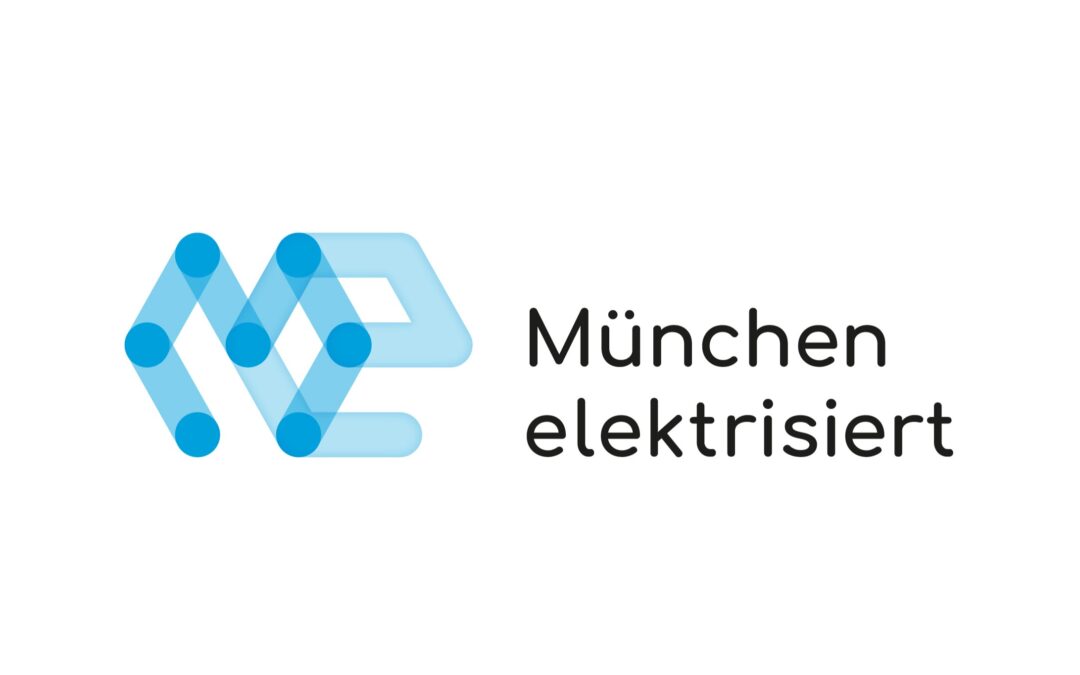With electromobility to climate neutrality
The City of Munich has set itself the goal of achieving climate neutrality throughout the city by 2035. In order to get closer to this goal, she set about creating a safe, efficient and nationwide network of charging infrastructure with the “Munich electrifies” project, among other things.
Together with its scientific partners, the Research Center for Energy Economics e.V. and the Technical University of Munich (TUM) with the two Chairs of Vehicle Technology and Traffic Technology and with the support of aconium, the Department for Climate and Environmental Protection of the City of Munich has executed the research and innovation project “Munich electrifies”.
One of the results of the project is the development and implementation of the “Charging in Munich” funding program to realize large-volume charging infrastructure projects. This includes the installation of charging infrastructure in residential buildings, commercial businesses and publicly accessible parking garages both in the urban area of Munich and in the districts of Dachau, Fürstenfeldbruck and Munich. In addition, a model-based procedure for determining optimal charging infrastructure solutions was developed on the basis of comprehensive mobility analyses and recommendations for action were formulated.
Within a term of 48 months, the project was funded by the Federal Ministry of Economics and Climate Protection as part of the “Clean Air Immediate Program” and ended on September 30, 2022.

In the course of the project, the “Loading in Munich” funding program was developed and initiated in order to implement large-volume charging infrastructure projects in residential buildings, commercial businesses and publicly accessible car parks both in the city of Munich and in the districts of Dachau, Fürstenfeldbruck and Munich. At the same time, a model-based procedure for determining optimal charging infrastructure solutions was developed on the basis of extensive mobility analyzes and recommendations for action were formulated. Another project goal was to promote the construction and operation of e-charging infrastructure on public land and to win over private companies for the implementation.
The research activities of the accompanying research formed the basis of the award procedure and the specific requirements. For this purpose, the current situation of the state capital with regard to the charging infrastructure was recorded, availability forecasts were developed, reservation and price models were examined and simulations were carried out.
Possible grid bottlenecks and changes in NO2 immission values associated with the increase in electromobility were also the focus of the accompanying scientific research.For example, the investigations, simulations and modeling showed, among other things, that emissions in the urban area can be significantly reduced by using electric vehicles. It has been demonstrated that the increasing share of electromobility forecast for the medium term (Germany: 15 million in 2030) in the medium urban distribution network will not require further network expansion. With regard to charging behavior, it was possible to conclude from the 700,000 charging processes examined that the AC charging stations (alternating current) with a comparatively longer charging time are used much less than the fast DC charging stations (direct current). Furthermore, it can be stated that mobility analyses are essential for the implementation of larger LIS expansion projects.
As part of the face-to-face event “Munich electrifies” moderated by aconium, interested parties were able to find out and exchange information about the potential offered by battery-electric mobility and other climate-neutral forms of drive and how the switchover can be successful. The specialist lectures given by the researchers, experts and practitioners addressed these specific questions. In addition, the event, with its accompanying thematic exhibition and a short excursion to interesting practical examples, aimed to raise visitor awareness of the subject of electromobility.
In addition to the moderation of events, aconium, as a long-standing expert in all service components of project management, also offers strategy development for large municipalities in metropolitan areas as well as for counties and municipalities in peripheral regions and accompanies these complex processes as a trustworthy partner.
Further information on the “Electrifying Munich” project can also be found on the project website:
https://atenekom.eu/project/muenchen-elektrisiert/

